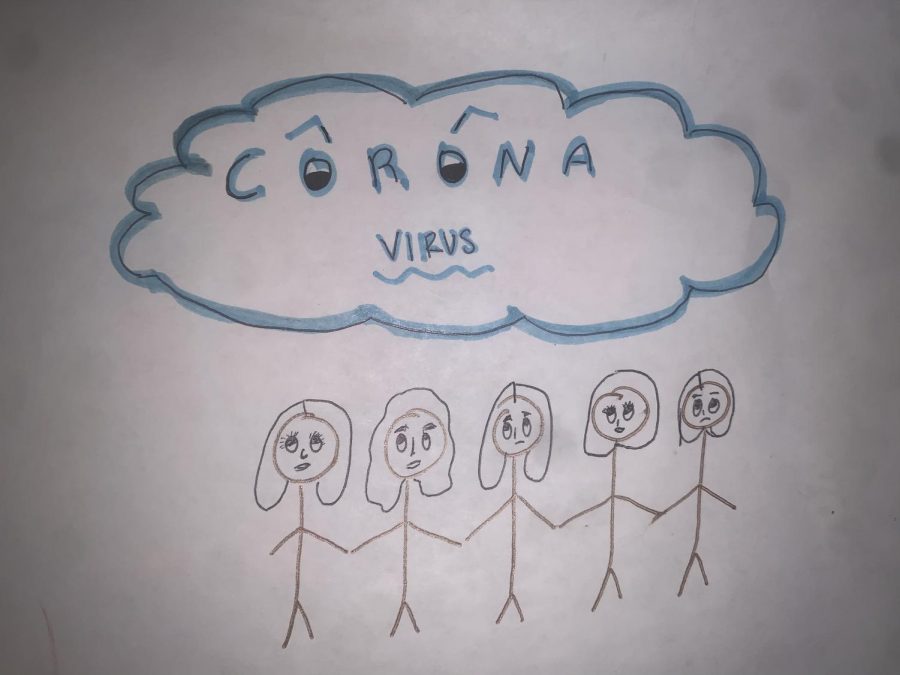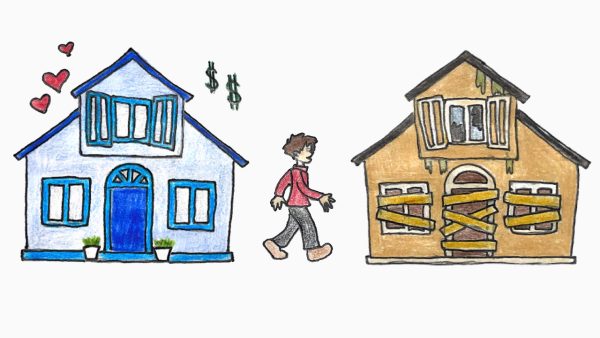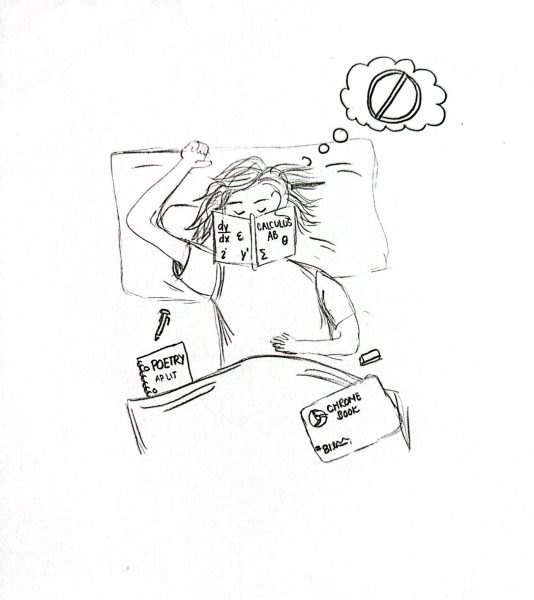How COVID-19 Is Disproportionately Hurting Low-Income Families
May 9, 2020
Towards the end of 2019 and during the first month of 2020, COVID-19, also known as the Coronovirus, seemed very insignificant and irrelevant to our lives. It was based in China, and even as it began spreading to Europe, it simply didn’t seem like an issue to worry about. As a few years ago, Ebola scares were a relatively important concern, but smaller urban communities didn’t necessarily fret over it. However, on January 20th, the United States confirmed its first case of the virus in Washington, D.C. Before long, America was plunged into chaos with hundreds of confirmed cases soon turning into too many to count as the U.S hit over one million cases in late April. This worldwide pandemic has resulted in a broken America where the government is struggling to uphold the economy, and with it ensuring the thousands of Americans who rely on their jobs to secure their families wellbeing.
The outburst in American cases soon led to over 69,000 deaths and sent the country into a downward spiral of pure economic and social mayhem. The long term effects of the virus have impacted Americans enormously. One effect being, the major increase in unemployment in the U.S. According to the Washington Post, over 6.6 million Americans have registered for unemployment relief, which is 13% higher. California has seen the worst of these impacts with the Central Valley’s unemployment rate jumping to over 10% in just months, according to an ABC30 news report.
The staggering unemployment levels signify a major step back for America’s economy. Companies and businesses across the nation were forced to dismiss workers at extreme levels due to the government mandated social distancing measures and because some businesses simply can’t afford to provide paid leave for workers during a time without profits. Such measures detailed which stores provide necessary services, and which stores must close.
Like most states in the U.S., schools, establishments like mom and pop stores, and retail stores are shut down because they aren’t considered “necessary.” Because of this, U.S. private companies have cut at least 27,000 people along with small businesses who are struggling to attract customers in this pandemic according to an MSN report. These precautions are to further eliminate the spread of the virus even more than it already has, but have left the population devastated with making ends meet money-wise.
While the cutbacks in jobs have devastating effects on the economy, the American people and their families arguably suffer the most. Many Americans live salary to salary, paycheck to paycheck.
A one-parent household relies on one salary, while a two-parent household relies on two. With current circumstances, it’s likely that households like these are struggling and scrambling to make ends meet, perhaps, more than they even did before. The elimination of stable sources of income has directly led to the decrease of financial stability for families across the nation, and has been especially harmful in families where multiple members have been laid off from their jobs.
Because of the lack of financial support families were faced with, the CARES (Coronavirus Aid, Relief, and Economic Security) Act was signed on March 27th. This act provides families with stimulus checks to support their needs and also provides unemployment insurance for the workers who are not usually eligible for unemployment benefits. This act has been a support system for financially unstable families during the pandemic, and has enormously saved and protected a plethora of families suffering from the effects of the recession.
This transition between money and adjusting to the government stay-at-home orders has been hard on a plethora of families. The Selma High School principal Guillermo Lopez commented that, “many of our students are having to work to help their families and/or take the role of a parent due to their parents having to leave the area to find work.” Students and teenagers have now begun bearing the burden of keeping a stable household.
Noticing the lack of financial support families were receiving, there are even local efforts in communities to help to bring relief during economic troubles. One such community is Selma, as Selma High School has spoken out about their means to help and support the families of Selma who are struggling during this time. Not only is the district allowing students to borrow chrome books if they lack internet and computer access, but are also providing meals to students who need them.
“Meals contain breakfast, lunch, and dinner, and are distributed Monday through Friday from 11:00 am to 1:00 pm,” explained the Selma High School sophomore learning director, Luis Collazo.
He went on to explain that the school and the district are trying their best efforts at talking some burden off the community in struggling times like these.
This pressure can also take a toll on people.
“SUSD mental health clinicians and administration have been in contact with students who might be experiencing mental health or personal issues,” explained Mr.Lopez. He made sure to emphasize how she is making an effort to keep these things into consideration when making decisions during this time.
As cases, deaths, and unemployed American numbers rise on the daily, it seems like life has no shortage of new topics to add to news headlines.
Stay healthy. Stay safe. Stay sane.






